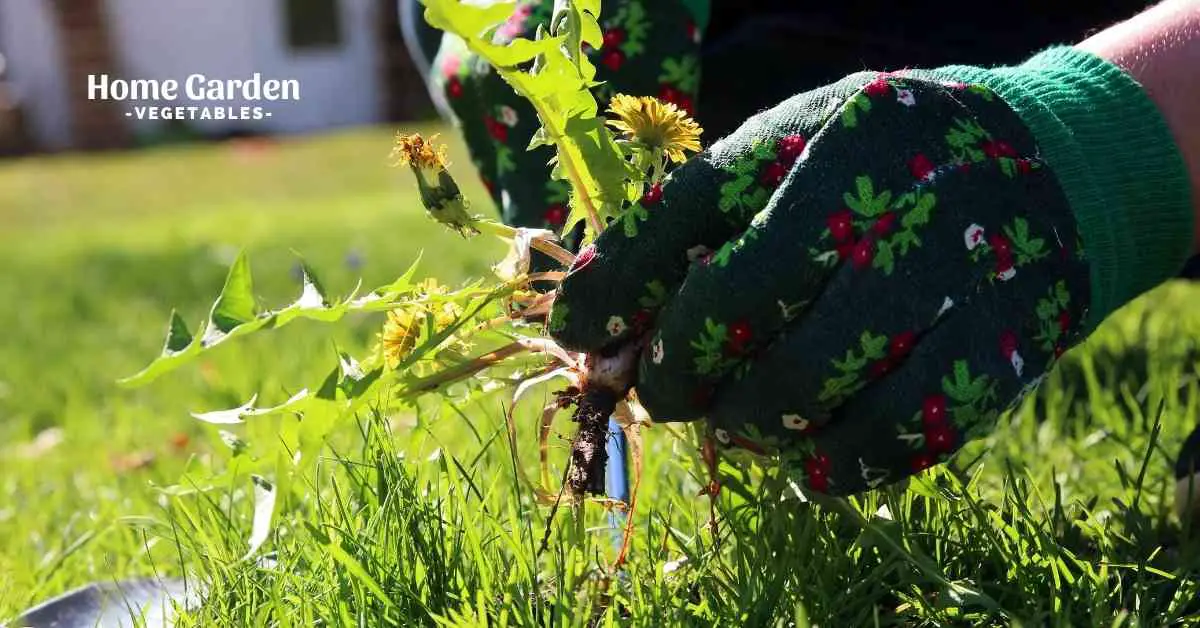Weeds are the worst uninvited guests in the garden. They’ll spring up just about anywhere they get a chance, vegetable garden being one of them. It’s not surprising to see them peeking out from cracks in driveways. Though you’ll find yourself weeding during the major part of your gardening time, it may seem like they’re reappearing at a much faster pace.
So what should you do? Is there any other way to get rid of weeds faster than using those standard weeding tools? Continue reading and you’ll learn how to get rid of weeds in vegetable garden naturally.
Reader Poll: What online courses would interest you?
Top Tips To Get Rids Of Weeds In Vegetable Garden Naturally
There are many ways to kill weeds in your garden. Weed killers are also available in most garden centers. However, before resorting to radical measures that will also deplete your soil health, harm your vegetable crops and negatively impact the environment, it’s best to try to get rid of weeds naturally. Here’s a list of tried-and-tested ways to get rid of weeds in your garden
1. Mulch
One of the most popular ways to get rid of weeds in your vegetable garden is layering the soil with mulch. Use organic material such as shredded leaves, grass clippings, wood chips, straw or hay to cover the soil around your plants. This organic layer over the soil blocks the sunlight for weeds, inhibiting their growth.
Other than preventing weeds, mulch also retains moisture and maintains soil temperature for your vegetable crops. Over time, mulch breaks down, seeping nutrients into the soil and bringing your crops a host of benefits. However, as it breaks down, you’ll need to replenish the mulch layer to keep the weeds out. Make sure there’s always 2 to 3 inches of mulch around the plants.
Subscribe to our newsletter!
2. Newspaper
Another way to kill weeds is to block their sunlight by spreading newspaper over them. It will kill the weeds that have already sprouted by not letting sunlight and oxygen get to them and will also prevent new weeds from sprouting. Spread sheets of newspaper over the soil and dampen it to hold it in place. Cover it with a 2-inch layer of mulch, such as straw or compost. As a bonus, this newspaper-mulch layer builds up the soil’s nutrients over time, helping your vegetable plants grow stronger and more productive.
3. Boiling Water
Boil some water in a kettle and pour it over the weeds. This simple technique will burn the weeds. However, make sure you don’t use this technique if you already have vegetables growing in the garden. Boiling water won’t distinguish between useful plants and unwanted ones. It will kill anything it comes in contact with.
4. Corn Meal
It’s a corn by-product that you can use against weeds in your garden. The gluten in them kills the weed seedlings even before they emerge from the ground. Spread corn meal around the seedlings and transplants to help control weeds in the area. Spread corn meal another time after harvest to prevent weeds from coming out and depleting the soil nutrients after the growing season.
5. Vinegar
Vinegar is a staple that’s present in almost every kitchen. The acetic acid in vinegar can kill plants. It’s most effective on immature plants since their roots aren’t fully developed yet. When you spray the weeds with vinegar, remember to cover the vegetable plants nearby since vinegar will kill anything that comes in its way and not just the unwanted weeds. Though it will take some time to work as compared to commercial weed killers, it doesn’t come with negative impacts on the environment.
6. Salt
It turns out that good old table salt is also an effective weed killer! It will dehydrate the weeds by inhibiting their ability to absorb water. Just spray salt water onto the weeds to kill them. Do keep in mind, though, that salt water will deplete the soil and damage surrounding plants. Using just a little and only where needed shouldn’t do too much harm, especially when irrigation or rainfall will dilute it in the coming few days.
7. DIY Weed Killer
You can make your own homemade weed killer by mixing vinegar, dish soap and salt in equal quantities. Add the solution to a sprayer bottle and spray it on the unwanted plants in your garden. However, use only a little, and only where needed to prevent harm to your precious vegetable crops.
8. Don’t Water Them!
If you don’t want weeds in the garden, think of the things that are necessary for them and then cut the supply of these. All plants, be it weeds, annuals or perennials, need water to grow. Don’t let them have any! Try to only point the hose or watering can at the roots of the vegetable plants and avoid directing it at the weeds. Though the weeds growing close to the plants will still receive moisture from the soil, some weeds will not get enough and dry up, especially during the hot summers.
Conclusion
So that’s how to get rid of weeds in vegetable garden naturally. Don’t let weeds take away all the critical resources that support your vegetable plants. Use the techniques that suit you best to get rid of the weeds so you can have a thriving vegetable garden that brings you bundles of fresh harvests season after season.

